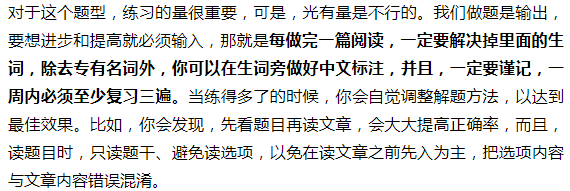【www.yyzstj.com--学科资料】
主动一致是英语少用到的语法,但是只要在作文上用了就是很提分的语法。小编在这里整理了相关资料,希望能帮助到您。
主动一致的若干规则
主语和动词单复数变化:
单数:
主语前有every, each或no修饰时。不定代词each, either, neither,another以及包含every, any, no的合成不定代词。news(消息),
math(数学)等抽象概念。表示时间、距离、金钱、重量等的名词。
复数:
people(人、人民),police(警察)。
单数或复数:
由and或both...and连接两个或以上名词时、指两个人事物,复数;指同一人事物,单数.
all——指人时用复数;指事物时用单数。
family, class, team等集合名词叶作为整体时,用单数;指单独成员时,用复数。
“the+形容词”*若指一类人,复数;若指某一人,单数。
with, together with, along with等句型叶单复数与前方主语一致。
由or, either"""or, neither"""nor等连接的对等主语叶单复数依最接近的主语而定。
POINT 1 对等结构作主语
1.两个或两个以上的单数名词或代词,由and或both.... and连接时,如果指的是两个人或事物,动词用复数形式。
例子:
He and I are good friends.
我和他是好朋友。
A teacher and a writer are going to speak at the meeting.
一个老师和一个作家将在会议上发言。
如果由and连接的两个词指的是同一个人、同一个事物或同一种概,动词要用单数形式。
例子:The teacher and writer is going to speak at the meeting.
这位老师兼作家将在会议上发言。
Time and tide waits for no man.
(谚语)岁月不待人。
2.由and连接的两个单数名词作主语,前面有every, each或n。修饰时,意义上仍为单数,动词用单数形式。
例子:
Every boy and every girl is taught to read and write.
每一个男孩和女孩都在学习读和写。
3.当主语后面跟有w i th, together w i th(和····一起),along with(和····一起),as we I I as(除……之外)等引导的短语时,其动词的单复数形式要和w i th, together w i th等之前的主语在人称和数上保持一致。
例子:
A teacher with fifteen students is playing in the playground.
一个老师和,5个学生在操场玩。
Tom together with his friends goes swimming every day in summer.
在夏天,汤姆天天和他的朋友们一起去游泳。
He as well as you is good at painting.
他和你一样.也擅长于绘画。
4.由or, eitherwor, neitherwnor等连接的对等主语,动词的单复数依最接近它的主语的单复数形式而定,这也称为比邻一致的原则。
例子:
You or I am to go to the bus stop.
你或者是我将去公车站。
Either you or he knows something about it
不是你就是他知道有关此事的一些情况。
POINT 2 不定代词作主语
不定代词each, either, neither, another以及包含every, any, no的合成 不定代词,在意义上都属于单数。它们作主语时,动词用单数。
例子:Each of them is trying his best.
他们每一个人都在尽最大努力。
Nobody was seen in the playground.
操场上看不到人。
Everybody is here.
大家都在这里。
Something is better than nothing.
(谚语)有比没有好。
POINT 3 集合名词作主语
1.people(人、人民),police(警察)等词作主语时,动词用复数形式。
例子:
There are three people in my family.
我家有3口人。
The police are standing there.
警察们正站在那里。
2. all指人时用复数动词,指事物时用单数。
回*All are here.
大家都到了。
卜All goes well.
一切都很好。
3. family, class, team等集合名词作为一个整体看待时,动词用单数形式;
all指其中各个成员时,动词用复数形式。比较:
例子:
My family is a big one.
我家是个大家庭。
His family are all working in Taipei.
他全家人都在台北工作。
The class has fifty students.
这个班有50个学生。
The class are listening to their teacher.
这个班的学生正在听老师讲话。
POINT 4 抽象名词作主语
news(消息),math(数学)等词作主语时,动词用单数形式。
例子:The news is very good. Where did you hear it?
这消息很好。你从哪儿听来的?
Math is my hardest subject.
数学是我觉得最难的科目。
POINT 5 数量概念作主语
表示时间、距离、金钱、重量等名词的复数作主语时,把这些复数词看作一个整体,动词用单数形式。
例子:
Ten years is a long time.
10年是很长的时间。
Ten minutes is enough.
10分钟就够了。
Twenty dollars has been paid.
已经付过20美元了。
POINT 6 名词化的形容词作主语
主语是由“the+形容词”结构担任,如果指一类人,动词用复数形式;如果指某一个人,动词用单数形式。
例子:The rich are not always happy.
有钱人也有不开心的时候。
The old are taken good care of in the city.
在这个城市里,老人得到了很好的照顾。
The young like the game.
年轻人喜欢这种游戏。
容易犯错的句子:
1.大家都到齐了,没有人缺席。
错:Everyone are here. No one are away.
对:Everyone is here. No one is absent.
不定代词everyone, everybody, anyone, anybody, no one, nobody等,在意义上都被看作单数。它们作主语时.动词用单数形式。
2.我们两个人都没去过阳明山。
错:Neither of us have been to Yang Ming Mountain.
对:Neither of us has been to Yang Ming Mountain.
当neither, either, any等词单独作主语或与of短语一起作主语时,其后动词用第三人称单数形式。又如:
Either of the answers is right.
两个答案中有一个是正确的。
3.他们每个人都有一个苹果。
错:Each of them have an apple.
对:Each of them has an apple.
不定代词each或与of短语连用作主语时.动词用第三人称单数形式。
4.美国是一个发达的国家。
错:The United States are a developed country.
对:The United States is a developed country.
以一s结尾的国名、书刊名、组织名称等作主语时.动词常用单数形式。
5.我认为数学比英语难得多。
错:I think math are much more difficult than English.
对:I think math is much more difficult than English.
以一s结尾的表示学科的名词如math(数学),physics(物理),politic(政治)等形式上是复数,实际上是单数概念。它们作主语时,其动词要用单数形式。
6.格林家一定在吃早饭。
错:The Greens is having breakfast.
对:The Greens are having breakfast.
"the+姓的复数”表示“某一家人”或“某某夫妇”,是复数概念,作主语时.其动词须用复数形式。
7.她的衣服看起来很漂亮。
错:Her clothes looks very nice.
对:Her clothes look very nice.
clothes(衣服)是复数名词,不能作单数用。当clothes作主语时,其动词要用复数形式。
8.这双鞋是我的。
错:This pair of shoes are mine.
对:This pair of shoes is mine.
一些由两个部分构成的衣物或工具名词,如glasses(眼镜),shoes(鞋),socks(短袜),stockings(长统袜),trousers(裤子)等作主语
时,动词用复数形式。My shoes are worn out.我的鞋穿坏了。但当这些名词前面有pair of, this pair of, a kind of, this kind of等短剧多饰时,动词通常用单数,如:
This pair of shoes looks nice.
这双鞋看起来很漂亮。
9.我们全家都喜欢看电视。
错:My family enjoy watching TV.
对:My family enjoys watching TV.
有些集合名词如family, class, group等作主语时,若看作是各个成员时,动词用复数。若看作整体,动词用单数。
His family is a big one.
他家是个大家庭。
The class has fifty students.
这个班有50个学生。
The class are having an English lesson.
这个班的学生正在上英语课。
10.两个月是很长的一段时间。
错:Two months are a long time.
对:Two months is a long time.
表示时间、距离、金钱、重量等名词的复数作主语时,这些复数名词被看作一个整体,动词用单数形式。
Five minutes is enough.
五分钟就够了。
11.格林先生和几个学生被派去协助约翰。
错:Mr. Green with some students were sent to help John.
对:Mr. Green with some students was sent to help John.
当主语后面跟的with, together with, along with, as well as, like, but, except 等短语,动词的单复数形式和这些短语之前的主语在人称和数上保持一致,动词的形式不受这些短语的影响。
No one except my parents knows the secret.
除了我的父母外.没有人知道这个秘密。
12.你和我都不对。
错:Neither you nor I are right.
对:Neither you nor I am right.
由:or, eitherwor, neitherwnorw, not onlywbut also二等连接的对等主语,
其动词的单复数要依最接近它的主语的单复数而定。
Either you or he is right.
你和他其中一个是对的。
13.星期天没有老师和学生在校。
错:No teacher and no student are school on Sundays.
对:No teacher and no student is at school on Sundays.
由and连接的两个单数名词作主语,前面有each, every或no修饰时,动词通常用单数。
14.没有消息就是好消息。
错:No news are good news.
对:No news is good news.
主语news是不可数名词.意义上是单数.因此动词要用单数形式。
15.不定代词all,some,most等作主语,其动词用单数形式还是复数形式?
all, most, some等不定代词作主语时,如指的是单数概念,动词用单数形式;如指的是复数概念,动词用复数形式。
例子:
All of us are busy working.
我们所有的人都忙着工作。
All of the bread was eaten.
所有的面包都吃完了。
Most of the earth is covered with water
地球上大部分地区都覆盖着水。
Most of them are young people.
他们当中大部分是年轻人。
英语各模块、题型我是怎么突破的
词 汇
语 法

阅读理解

完形填空

作 文

听 力

和大家说了这么多,其实,总结起来,高三提高英语水平和成绩的方法只有两个:第一,不怕吃苦;第二,在不怕吃苦的基础上不断调整自己的学习方法,以期寻找到最适合自己的高效学习法。
上一篇:英语语法填空答题技巧
下一篇:英语语法填空题答题技巧